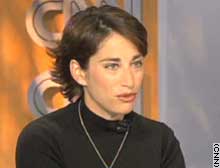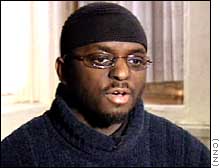Ein Essay von Seyran Ateş
(Auszug aus einem Text, der heute auf der neuen Meinungsseite der ZEIT erscheint. Mehr an einem Kiosk Ihres Vertrauens.)
Wer sich wie ich seit Jahren an der Debatte über Integration beteiligt, wird immer wieder mit der Forderung konfrontiert, man müsse dies oder jenes doch bitte „differenziert betrachten“.
Differenzierung ist ein Zauberwort in der Integrationsdebatte. Es entscheidet darüber, ob jemand politisch korrekt ist oder nicht, ob er oder sie zu den Guten oder zu den Bösen gehört. Und was könnte man wohl gegen diese Forderung haben? Wer wollte schon gerne als undifferenziert, als polarisierend bewertet werden? „Sie waren toll, Sie haben das so differenziert dargestellt, sie haben nicht polarisiert. Vielen Dank“. Wenn nach einem Vortrag solches Lob kommt, macht sich meist Erleichterung breit.
Doch merkwürdig: Ich für meinen Teil denke mittlerweile, dass ich etwas falsch gemacht habe, wenn ich diesen Satz höre. Die Differenzierungsfalle hat mich erwischt. Konnte ich meine Position überhaupt vermitteln, wenn ich doch so schön differenziert habe, dass niemand sich auf den Schlips getreten fühlt? (…)
Die Differenzierungswächter hätten gerne, dass wir solange differenzieren, bis es nur noch unvergleichliche Einzelfälle gibt – keine Deutschen gibt, keine Türken, keinen Islam, keine Ehrenmorde und keine Zwangsehen. (Nur bei bedrängten Minderheiten wie den Kurden hört der Spaß auf, die traut sich kein politisch korrekter Deutscher wegzudifferenzieren.) Deutschland, gibt es dieses Land überhaupt? Deutschsein ist doch lediglich eine Konstruktion, glaubt der ausdifferenzierte, politisch korrekte Multikulti-Anhänger. Dass es so etwas wie eine deutsche Identität gibt, stellt eine Provokation für viele Linke und Liberale dar.

Seyran Ates
(…)
Nach diesem Muster läuft die Debatte über die jüngsten Änderungen des Zuwanderungsgesetzes. Die Anforderung, Sprachkenntnisse schon im Herkunftsland zu erwerben, sei reine Türkenfeindlichkeit, hieß es von seiten der Migrantenverbände. Hunderte, wenn nicht gar Tausende anatolische Bäuerinnen, die Analphabetinnen sind – so die Klage -, dürfen nicht zu ihrem Ehemann nach Deutschland, wenn sie vor der Einreise keine ausreichenden Sprachkenntnisse nachweisen. Wie kann man nur von diesen armen Frauen verlangen, dass sie 300 – 400 deutsche Wörter lernen, sagen die Kritiker der Gesetzes. Diese Frauen sind doch eh schon Opfer des Kapitalismus, des Patriarchats, des Westens – und nun auch noch des deutschen Zuwanderungsgesetzes.
Warum sollen diese Frauen nicht einfach nachziehen dürfen? Liebende werden getrennt, das Zusammenkommen erschwert. Ich sehe regelmäßig in vor Romantik triefende Augen, wenn ich diese Erklärung höre. Die Forderung nach Sprachkenntnissen – da sind sich türkische Funktionäre und deutsche Gutmenschen einig – ist unmenschlich.
Haben sich diese armen Frauen denn etwa in einem romantischen Moment in einen in Deutschland lebenden Verwandten oder Bekannten der Familie verliebt?
Eine anatolische Frau vom Land ohne Sprachkenntnisse hat keine Möglichkeiten,sich auf dem Heiratsmarkt nach Gutdünken umzuschauen. Vieles spricht dafür, dass sie gegen ihren Willen ins reiche Deutschland verheiratet wird. Sie mag es zwar selbst durchaus auch als Befreiung empfinden, durch Heirat ihre Lebenssituation zu verändern. Doch damit sie in Deutschland dem Ehemann nicht schutzlos ausgesetzt ist, wäre es doch wohl von Vorteil, wenn sie einige wenige Worte Deutsch spricht, oder?
Wenn ich so argumentiere, schnappt die Differenzierungsfalle zu: Wie kann ich diese Frage überhaupt stellen? Das unterstellt doch, alle diese türkischen Frauen würden zwangsverheiratet werden. Das sei eine unzulässige Verallgemeinerung, eine Sünde wider das Differenzierungsgebot.
(…)
Wenn wir ein Einwanderungsland werden wollen, das seinen Namen verdient, brauchen wir eine Identifikation mit Deutschland. Damit können sich die Differenzierungsstreber nicht anfreunden. Den Einwanderern die Identifikation mit Deutschland nahezulegen, läuft politisch korrekten Menschen zuwider. Sie halten es für historisch überholt, daß der Mensch eine Identifikation mit dem Land brauche, in dem er lebt.
(…)
Es gibt nicht nur ein Identitätsproblem der Zuwanderer, sondern auch eines der Deutschen, die sich selbst und ihr Land nicht leiden können. Beide bedingen einander. Statt sich weg zu differenzieren müssen die Deutschen lernen, sich und ihre nationale Identität zu akzeptieren.
Es ist eine Ironie der Integrationsdebatte, dass diejenigen, die ihr Deutschsein verleugnen, uns Einwanderern immer wieder erklären, dass wir stolz darauf sein sollten Migranten – Türken, Kurden, Muslime zu sein. Sie kämpfen für den Erhalt unserer Identität und sind irritiert, wenn wir ihre Aufforderung nicht erfüllen. Wenn wir ihnen erklären, dass wir mehrere Identitäten haben, und zwar auch eine deutsche, sind sie ganz verzweifelt, weil sie nun gar nicht verstehen können, wie jemand freiwillig Deutscher sein kann. Ob diesen Menschen aufgefallen ist, dass Erdoğan ganz ähnlich wie sie argumentiert?
(…)





